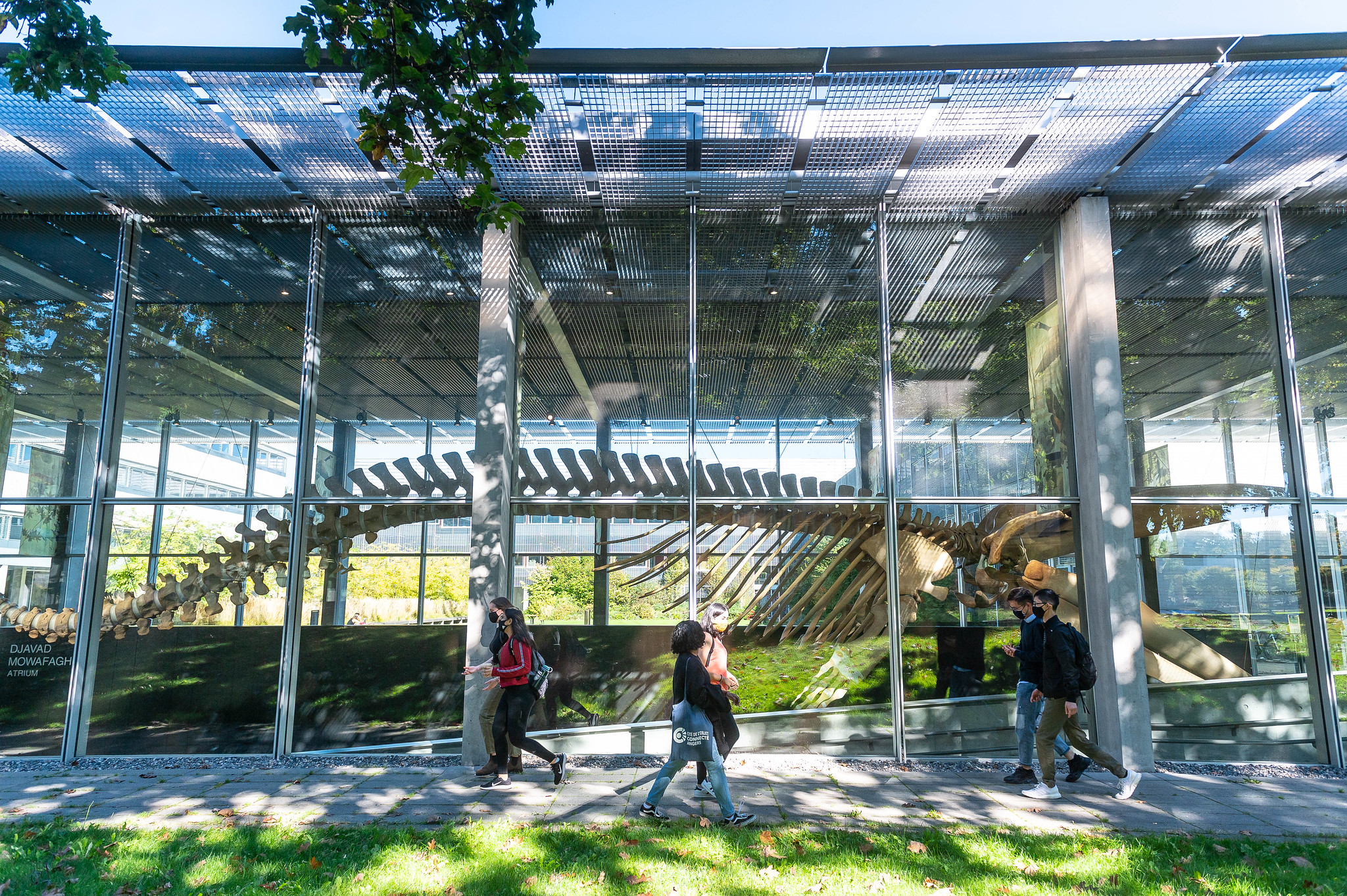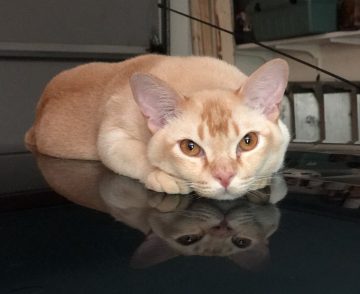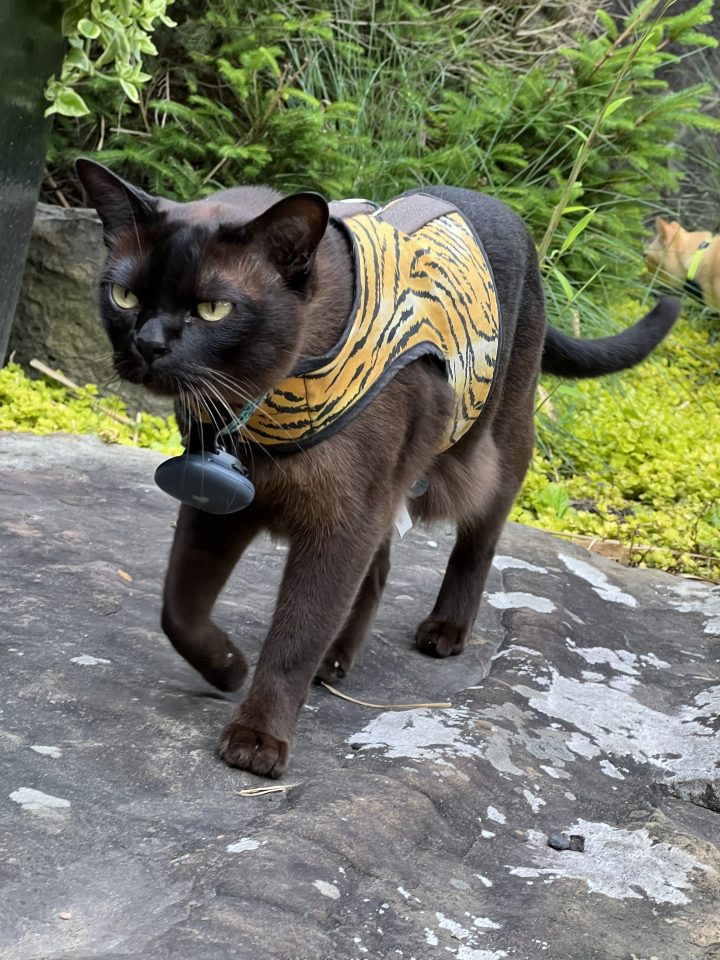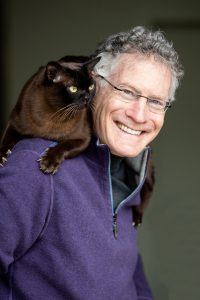The Cat’s Meow: How Cats Evolved from the Savannah to Your Sofa


October 29, 2024
7:00 pm - 8:30 pm
Robert H. Lee Alumni Centre
Free
 The domestic cat — your cat — has undergone a remarkable transformation from its African origins to become one of the planet’s most successful and varied species in a relatively short time. Jonathan Losos, both a scientist and a cat enthusiast, delves into how today’s researchers are uncovering the secrets of cats, both past and present, using cutting-edge tools like GPS tracking (you’d be surprised by where those backyard cats wander), genomics (what’s the real story behind your so-called Siamese?), and forensic archaeology. Losos not only investigates your cat’s history but also provides a fascinating look at today’s environments, introducing you to wild relatives around the world whose behaviors sometimes strikingly resemble those of your own sweet house cat.
The domestic cat — your cat — has undergone a remarkable transformation from its African origins to become one of the planet’s most successful and varied species in a relatively short time. Jonathan Losos, both a scientist and a cat enthusiast, delves into how today’s researchers are uncovering the secrets of cats, both past and present, using cutting-edge tools like GPS tracking (you’d be surprised by where those backyard cats wander), genomics (what’s the real story behind your so-called Siamese?), and forensic archaeology. Losos not only investigates your cat’s history but also provides a fascinating look at today’s environments, introducing you to wild relatives around the world whose behaviors sometimes strikingly resemble those of your own sweet house cat.
Ever wondered if lions and tigers meow? Why does your cat leave dead mice at your feet or on your pillow? Is owning a pet ocelot a bad idea? When and why did cats make their significant leap from the African plains? What’s the story behind all those cats in Egyptian hieroglyphics? With a friendly tone and a knack for making complex science and history accessible, Losos draws on his own research and experiences with his multi-cat household to explain how both natural and artificial selection over thousands of years has shaped the modern cat. Despite the vast differences in anatomy and behavior among new breeds compared to their ancestors, the cat remains a fierce predator, always on the cusp of returning to its wild roots as it adapts to new environments around the globe. 
Humans are transforming cats, and in turn, cats are influencing the world around them. This engaging and insightful book offers a glimpse into what the future might hold for both Felis catus and Homo sapiens.
 Jonathan Losos is an evolutionary biologist renowned for his research on how lizards quickly evolve to adapt to changing environments. His comprehensive approach integrates field experiments, behavioral observations, biomechanical analyses, and genomic studies. Recently inspired by a friend’s advice that “life’s too short not to study cats,” Losos has applied these same methods to exploring the domestic cat.
Jonathan Losos is an evolutionary biologist renowned for his research on how lizards quickly evolve to adapt to changing environments. His comprehensive approach integrates field experiments, behavioral observations, biomechanical analyses, and genomic studies. Recently inspired by a friend’s advice that “life’s too short not to study cats,” Losos has applied these same methods to exploring the domestic cat.
Losos completed his undergraduate studies at Harvard University and earned his PhD from the University of California. Following a postdoctoral position at UC Davis, he began his academic career at Washington University. He then moved to Harvard University as a professor of biology and Curator of Herpetology at the Museum of Comparative Zoology. In 2018, Losos returned to Washington University to establish the Living Earth Collaborative, a partnership dedicated to the study and conservation of biodiversity with the Saint Louis Zoo and the Missouri Botanical Garden.
He has published over 250 scientific papers and authored three books, including The Cat’s Meow: How Cats Evolved from the Savanna to Your Sofa (Penguin Random House, 2017). Losos has been recognized with memberships in the National Academy of Sciences and the American Philosophical Society, as well as fellowship in the American Academy of Arts & Sciences. His honors also include the Daniel Giraud Elliot Medal from the National Academy of Sciences and the Edward O. Wilson Naturalist Award from the American Society of Naturalists.
The event will be held in the Jack Poole Hall at the Robert H. Lee Alumni Centre. Please click here for the address.
Space is limited and guests will be seated on a first-come, first-served basis. Doors open at 6:30 pm.
Parking: there is limited metered street parking available along University Blvd and Wesbrook Mall. We suggest using one of the following parkades:
View the university parkade and parking lot map.
In partnership with the Biodiversity Research Centre (BRC), the Beaty Biodiversity Museum presents an ongoing series of lectures exploring our understandings of biodiversity.